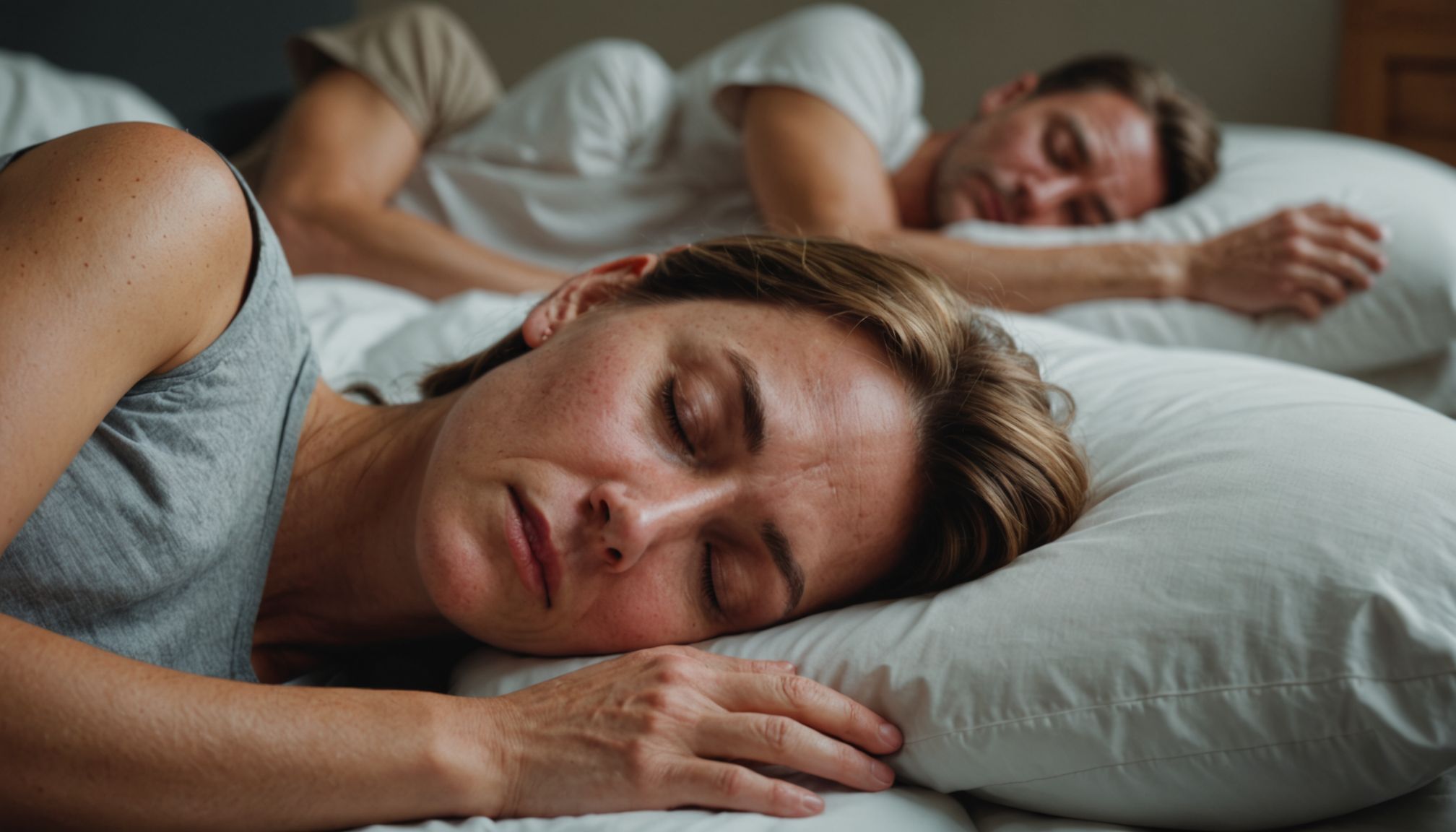Could the Way You Sleep Make You Look Older? Experts Say ‘Definitely’
Compression and friction from side and stomach sleeping can lead to wrinkles and premature skin sagging.
By Jennifer Romolini
The more you know! Compression and friction from side and stomach sleeping can lead to wrinkles and premature skin sagging. (Getty Images)
“You sleep on your stomach or your side, I can tell,” said the dermatologist who was examining my skin last month. “Your pillow is definitely pushing on your face and causing it to sag here,” she continued, her gloved finger touching my left jaw. “Oh, and see this?” she said, pointing at my chest, “these lines are deeper because you’re sleeping on your side.” I’ve been a beauty editor for more than 20 years. I’ve spoken to dozens, if not hundreds, of skin experts. This was the first time I’d ever considered that how I sleep could be contributing to — and even accelerating — the aging process. But as it turns out, sleep position affects our skin more than we may think.
Quick Overview
Silicone chest pads to keep skin taut
Cleverfy Silicone Chest Wrinkle Pads, 6-Pack
$33 at Amazon
Retinoids and bakuchiol to stimulate collagen
Good Molecules Gentle Retinol Cream
$8 at Ulta
Peptides to support skin regeneration
The Inkey List Collagen Peptide Serum
$15 at Amazon
Silk pillowcases to prevent further wrinkling
Zimasilk Mulberry Silk Pillowcase
$22 with coupon at Amazon
Vitamin C to protect and revive skin
Timeless Skin Care 20% Vitamin C + E Ferulic Acid Serum
$26 at Amazon
“Sleep is essential for cellular repair and skin regeneration, but the way we sleep can significantly influence how our face and chest age,” explains Dr. Svetlana Danovich, a triple board-certified cosmetic surgeon and founder of New York’s SD Medical Arts. “When we repeatedly sleep on our side or stomach, the skin is compressed against the pillow, creating mechanical stress. Over time, this compression causes creases in the skin, commonly known as ‘sleep lines,’ that can eventually become permanent wrinkles. Areas most vulnerable include the cheeks, nasolabial folds [lines that reach from the bottom of the nose to the end of the mouth], jawline and décolleté.”
The Best (and Worst) Sleep Positions for Your Skin
While experts say side (specifically left side) sleeping is the best for your health, Danovich told me this is actually among the worst positions for your skin. “Side and stomach sleeping are the most damaging for the skin,” she says. “These positions apply consistent pressure and friction to one side of the face and the chest, contributing to asymmetry, fine lines and vertical chest wrinkles. The repeated force weakens collagen and elastin, accelerating the loss of firmness and elasticity, especially in delicate areas.”
According to Danovich, back sleeping is by far the most skin-friendly position. “It prevents direct contact between your face and pillow, reducing tension and fluid buildup. Back sleeping also helps maintain facial symmetry and protects the décolleté from creasing. For added benefit, elevating the head slightly can reduce puffiness by minimizing fluid retention.”
How to Prevent—and Treat—Sleep-Positional Aging
But it’s not all aging doom for side and stomach snoozers: Danovich says that consistent at-home interventions can help protect your skin from further sleep-related damage. “It’s a combination of smart skin care, lifestyle adjustments and internal wellness,” she explains. In addition to the use of targeted products, she suggests minimizing salt intake to reduce puffiness and increasing your intake of H2O. “Together, these strategies create a comprehensive approach to slowing skin aging and preserving skin integrity, even while you sleep,” Danovich says. Here’s what she specifically recommends.
Amazon
Silicone chest pads to keep skin taut
Cleverfy Silicone Chest Wrinkle Pads, 6-Pack
Danovich says these simple skin care stickers will “prevent vertical lines on the décolleté by keeping the skin smooth overnight.” Cleverfy’s version combines clinically tested, dermatologist-approved clear silicone to hydrate your chest along with extra-strong adhesive to keep skin in this delicate area pulled taut while you slumber. Each pad can be reused up to 15 times.
$33 at Amazon
Ulta
Retinoids and bakuchiol to stimulate collagen
Good Molecules Gentle Retinol Cream
Retinol and bakuchiol are two key ingredients for any firming product, which is why this more gentle, beginner’s retinol cream comes highly recommended by dermatologists. Both ingredients help increase collagen production, though bakuchiol is often touted as a natural alternative to retinol, as it has

